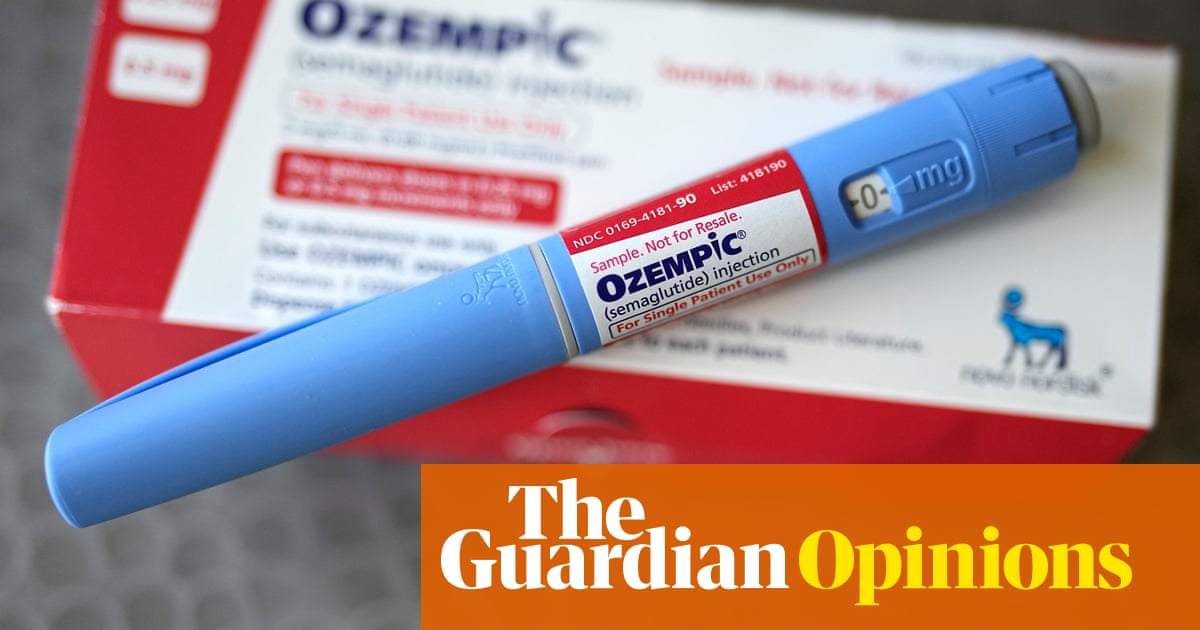
The American healthcare system is broken. It is too complicated and too hard for people to get the care and medications they need. More than 70% of Americans feel it has failed them. The level of frustration and anger directed at this system is palpable. In fact, what is increasingly apparent is there is no “system” at all.
New GLP-1 drugs – a class that includes Wegovy and Ozempic – have revolutionized our understanding of weight loss, but they have also illuminated the flaws in our healthcare delivery. People who have struggled with their weight for their entire lives are rightfully frustrated when they learn there is now a medication that can help them but they cannot access it. I carry three health insurance plans and none of them would cover payment for the drug. Faced with this reality, and my increasing percentage of body fat, I decided to pay out of pocket – over $1,000 a month – for a GLP-1 to treat my prediabetes. For most people, that is not an option.
Though not a panacea, these new anti-obesity drugs are highly effective in helping people treat the complications associated with excess weight, which include cardiac and kidney disease, type 2 diabetes and prediabetes, 13 forms of cancer, and probably certain types of dementia.
Obesity is killing millions of people. At this point, excess fat may be more damaging to our health than cigarettes. In the face of exorbitantly high drug prices, patients struggling with excess weight are caught in a system of bewildering complexity and even potential danger. People whose insurance will not cover these drugs are left with three options: endure financial hardship, use less effective therapeutic options, or resort to compounded medications whose quality or safety has not been assured.
The third option is where the potential for danger lies. In the face of drug shortages and increased patient demand, a complicated set of foreign chemical manufacturers, middlemen distributors and repackagers, and compounding pharmacies offer cheaper versions of these drugs with less assurance of their quality. There is no national standard for these medications, with few FDA inspections of the foreign chemical manufacturers, and no federal testing or oversight of the product itself. Compounders are pushing the limits on marketing their versions as approved products and it’s virtually impossible for the consumer to discern the difference between approved drugs and compounded copies. It’s a deal with the devil – cheaper drugs but less assurances of safety.
The one benefit of compounded GLP-1s is that they have forced the pharmaceutical manufacturers to lower their prices. Their presence in the market has also forced the pharmaceutical industry to sell GLP-1s directly to patients at reduced prices. The two manufacturers of approved GLP-1s, Lilly and Novo Nordisk, have set up online platforms to bypass both compounding and traditional pharmacies, and Lilly has partnered with three telehealth services to provide access to obesity-trained doctors and registered dietitians.
Insurance will cover these drugs in certain cases, such as with co-occurring sleep apnea or heart disease, but the process of meeting an insurance plan’s criteria adds to the complexity. Employers who provide insurance to their employees work with pharmacy benefit managers to manage prescription drug benefits, and in doing so they put in place a dizzying array of limitations to try to control costs.
Some health insurers cover GLP-1s for people who are most at risk of serious disease, for example those with a BMI over 40. Others cover expensive weight-loss surgery, but not the less invasive drugs. Some providers require patients to demonstrate that they have tried other weight-loss measures – which they probably have, exhaustively – before granting coverage. Others use, as they do with other expensive drugs, time-consuming pre-approval steps requiring endless rounds of information to sort out who they think will benefit from the drugs.
No doubt these pre-approval steps save money, but they also risk the health and wellbeing of millions of people. As one exasperated doctor recently said about insurers’ pre-approval process: “Aren’t they bordering on practicing medicine themselves instead of providing insurance?” Talking about a patient with a BMI of 41 who has gastrointestinal reflux, but doesn’t yet have metabolic disorder, the doctor commented: “But must we wait until she does?”
In response to a statement at a recent medical meeting by one of the leaders of CVS Caremark, a pharmacy benefit management subsidiary, who stated that we are all just dealing with a frustrating system, a physician recently wrote: “Ma’am you ARE the system. You’re making it frustrating.”
Who gets to decide the course of treatment for the patient? It is hard to understand why insurance company decisions would be better or more evidence-based than those of the board-certified physicians who are prescribing the medications, and who know and have examined the patient. Doctors are trying to figure out the just-right combinations of diagnoses that will convince insurance companies to approve the drugs. Patients, meanwhile, have little voice in this process.
While much of this dysfunction can be attributed to cost-saving efforts, it is complicated by the misguided belief that obesity can be overcome by sheer willpower. Collectively, the medical community, and society as a whole, have failed to acknowledge the biological nature of obesity, as well as the reality that it contributes to many years of disability and causes serious diseases. Our bodies have experienced an insidious decline over the past half-century that has been caused by never-ending consumption of foods that can trigger our brains’ addictive circuits. It would be better to change our food environment than use drugs to tame those circuits. But that is not likely to happen anytime soon, so we are left with the healthcare system having to shoulder the damage caused by our modern reality.
But the current system is incapable of doing that. The pharmaceutical industry is charging too much for these drugs. The FDA is becoming dismantled under the current administration and is not capable of assuring the safety of drugs coming into this country. The health insurance industry has made it impossible to get access to these drugs. The American public is only going to grow angrier.
No American should have to worry about whether their insurance coverage is enough to keep them alive or provide access to the medicines they need.
-
David A Kessler MD served as commissioner of the FDA under Presidents George HW Bush and Bill Clinton. He co-led Operation Warp Speed in the Biden administration and has been the dean of the medical schools at Yale and the University of California, San Francisco. His latest book is Diet, Drugs, and Dopamine: The New Science of Achieving a Healthy Weight.




